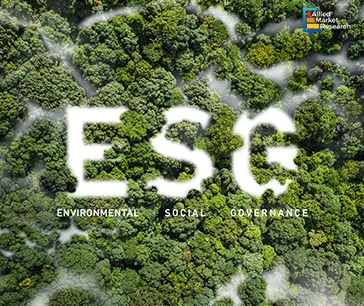Q4 2024 BFSI Insights: Key Trends, Sustainability, and Tech-Driven Innovations

The BFSI industry experienced transformative growth in Q4 2024, driven by the adoption of generative AI, ESG initiatives, and private credit expansion. Leading financial institutions utilized technology to enhance efficiency, customer experiences, and sustainability in this quarter. Moreover, regional dynamics demonstrated innovation, funding surges, and strategic advancements across North America, Europe, and Asia-Pacific, reshaping the sector’s future.
Allied Market Research attempts to highlight the key trends fueling the growth of the sector during the period. It also represents strategies adopted by leading banks across different geographical areas, significantly playing a key role in boosting the sector’s development.
Technological innovations and sustainability transforming the BFSI domain in Q4 2024
The BFSI industry observed a significant rise in the fourth quarter of 2024 due to the increased implementation of modern technologies such as Generative AI by leading financial companies. Many financial institutions utilized Gen AI to enhance customer experiences, streamline operations, and deliver personalized services during this period. Major players like Goldman Sachs, JPMorgan, Nomura, and Lazard incorporated AI technology aimed at automating repetitive tasks such as data analysis and document preparation for junior bankers. It helped improve their operational efficiency and support work-life balance.

The integration of Gen AI brought significant transformation within the banking sector. It optimized processes and enhanced security measures and customer satisfaction. Over 50% of tech leaders in finance showed interest in AI applications in Q4 2024. The trend indicated a strong transition toward automation and innovation. This technology allowed institutions to handle complicated tasks more efficiently, freeing up resources for higher-value activities that foster deeper customer engagement.
In December 2024, Zopa, a digital bank based in the UK, successfully raised £68 million in funding to facilitate the launch of its new current account and to invest in Gen AI technologies designed to enhance customer engagement. This equity funding round was led by A.P. Moller Holding, alongside contributions from existing investors. The capital is expected to support Zopa's growth initiatives, aiming to redefine customer interactions with its innovative offerings by 2025.
Furthermore, in November 2024, BBVA, the Spanish banking giant, acquired 3,000 ChatGPT licenses from OpenAI. This initiative facilitated the creation of tailored tools, including retrieval augmented generation (RAGs), which resulted in a significant surge of creativity within the organization. The deployment of these licenses enabled BBVA employees to enhance productivity, innovate customized applications, streamline processes, and improve customer service.
On the other hand, in October 2024, the Commonwealth Bank of Australia reported significant improvements following the implementation of generative AI technologies. The bank achieved a 50% reduction in customer scam losses, a 30% decrease in fraud reported by customers, and a 40% decline in call center waiting times. These AI-driven security features and proactive messaging enhanced both customer safety and service efficiency significantly.
In Q4 2024, the rapid expansion of the private credit market increased the investment rates across the BFSI sector. Private credits offered alternative financing options amid tighter bank lending conditions to consumers. With private credit assets under management reaching approximately $1.5 trillion in the quarter, this sector provided borrowers with greater pricing certainty and faster access to capital. The demand for private credit surged during this period as businesses prioritized refinance maturing loans and envisioned overcoming economic uncertainties. This led to increased activity in direct lending and customized financial solutions, supporting corporate financing needs and enhancing overall market resilience.
For instance, in the US market, the private credit sector reached $1.6 trillion globally in 2024, enabling it to potentially improve the combined U.S. loan and high-yield markets by 2028. This transition highlighted the increasing reliance on private credit as a flexible financing alternative for businesses.
In Q4 2024, environmental, social, and governance (ESG) factors gained prominence, influencing investment strategies and business operations within the BFSI sector. Financial institutions increasingly prioritized sustainable practices, such as financing renewable energy projects and adopting eco-friendly measures, to comply with regulatory demands and respond to rising consumer expectations for responsible banking. These ESG initiatives reflected a remarkable transition toward more sustainable financial practices. Here are some key findings in this context:

Federal Bank was recognized as one of the 'ESG Champions of India 2024' in the Commercial Banks sector at the Dun & Bradstreet ESG Leadership Summit 2024. This privilege highlighted the commitment of the bank to sustainable practices and excellence in Environmental, Social, and Governance initiatives.
Moreover, in late 2024, several major U.S. banks, including Morgan Stanley, Citigroup, Bank of America, Wells Fargo, and Goldman Sachs, withdrew from the United Nations-backed Net-Zero Banking Alliance, which aimed to reduce carbon emissions by 2050. This decision was largely influenced by political pressures and criticisms from conservative groups regarding the banks' ESG commitments, reflecting a growing rationalism toward climate initiatives in the financial sector.
Regional highlights propelling the growth of the BFSI industry in Q4 2024
In the fourth quarter of 2024, the BFSI industry was examined across various geographical areas including North America, Europe, and Asia-Pacific. The North America region was primarily driven by the integration of generative AI technologies, enhancing customer personalization and operational efficiency. The four largest U.S. banks, JPMorgan Chase, Bank of America, Citigroup, and Wells Fargo, accounted for 44% of the industry’s total profits. Together, they reported around $88 billion in profits. Including U.S. Bank, PNC, and Truist, the seven largest banks generated nearly 56% of all banking profits, up from 48% in the same period.
Moreover, global fintech funding increased in October 2024, reaching approximately $2.66 billion, up from $2.2 billion in September. Notably, Splitero secured $300 million managed by Antarctica Capital, while Zepz raised $267 million from investors like Leapfrog and Accel to expand into African markets.
Additionally, despite optimistic projections, major Indian IT firms experienced a gap between expected growth and actual revenue from North America's BFSI sector. For example, Tata Consultancy Services reported a 2.1% year-over-year decline in North American revenue in Q2 FY25, indicating that positive market signals have not yet converted into financial gains.
On the other hand, the European region stood out as a dominant player in Q4 2024. The Euro Stoxx Banks index rose over 20% in 2024, with banks like UniCredit and Intesa Sanpaolo leading the gains. This performance was attributed to higher interest rates boosting profits, enabling substantial capital returns to shareholders, including €45 billion in share buybacks.
Furthermore, In 2024, UK-based fintech company Revolut achieved significant milestones, securing a UK banking license in July and entering the 'mobilization' stage. The firm is expected to relocate its global headquarters to Canary Wharf in May 2025, expanding office space by over 40%. By November, Revolut's customer base surged from 38 million to 50 million, with a valuation reaching $45 billion, making it Europe's most valuable private fintech firm.
In parallel, European technology startups secured $45 billion in funding in 2024, a slight decline from $47 billion in 2023. However, the IPO landscape showed signs of revival, with over 100 potential candidates, including Revolut, Zopa, and Bolt, preparing for public listings.
Simultaneously, the Asia-Pacific region also witnessed remarkable growth due to digital transformation, robust economic recovery, and rising demand for financial products. For instance, Tech Mahindra, an Indian multinational IT services firm, is expected to focus on the BFSI sector, aiming to boost revenue from this segment from 16% to 25% by March 2027. Meanwhile, in Australia, UBS and Goldman Sachs led the investment banking advisory sector in 2024, particularly in mergers and acquisitions. Through this investment, Goldman supported the $24 billion sale of AirTrunk. In December 2024, Indian fintechs raised $425.4 million through six deals, showing renewed investor confidence in the sector.
The crux
The BFSI industry in Q4 2024 showcased a dynamic convergence of technological innovation, ESG priorities, and private credit expansion. With regional advancements in North America, Europe, and Asia-Pacific, the sector embraced automation, sustainability, and strategic funding. All these factors led to a transformative future for the sector, driven by resilience, customer-centricity, and adaptive financial solutions.
To gain more insights into the emerging trends in the BFSI industry, feel free to talk to our industry analysts today!



